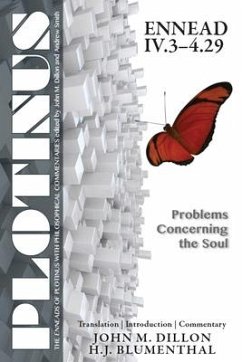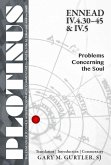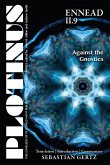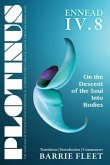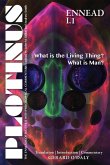"Taking up the initial version of a work begun by one of the best connoisseurs of Plotinus in the English language, Henry Blumenthal, who died tragically in 1998, John Dillon, whose competence concerning the Platonic tradition is acknowledged by all, proposes this annotated translation of Ennead IV.3-IV.29. [It] contains, in elegant English illuminated by numerous notes, a mine of information on the productive and providential functions of the world soul according to Plotinus, and on the peregrinations and functions of the human soul." --Luc Brisson, Director of Research, Jean Pépin Centre, CNRS (France) "This is a volume to treasure, by two of the most authoritative contemporary voices on Neoplatonism. The translation succeeds in being both fluent and accurate while the commentary is exceptionally helpful in guiding the reader through the intricacies and obscurities of Plotinus' philosophy of the Soul."--Suzanne Stern-Gillet, Professor of Ancient Philosophy, University of Bolton "We could have no better guide to the thought of this complex but crucially important treatise in Plotinus' oeuvre than John Dillon, who is able to build on the legacy of the late Henry Blumenthal." --David T. Runia, Professorial Fellow, School of Historical and Philosophical Studies, University of Melbourne "Dillon and Blumenthal offer us an authoritative new translation of one of Plotinus' most intricate and insightful writings on psychology. Their commentary guides us effectively through the maze of the author's complex argumentation, which concerns the nature of the soul, its relation to the body, its inner life and its passions." --Paul Kalligas, Assistant Professor of Ancient Philosophy, National and Kapodistrian University of Athens "Dillon and Blumenthal have produced a much needed, up-to-date translation of Plotinus' writings on soul, and an incisive commentary that portrays the aporetic approach to Plotinus' investigation as well as the ingenuity of his reasoning. For students and scholars alike, this commentary will likely become an essential accompaniment to Blumenthal's Plotinus' Psychology: His Doctrines of the Embodied Soul." --Danny Muñoz-Hutchinson, Assistant Professor of Philosophy, St. Olaf College
Hinweis: Dieser Artikel kann nur an eine deutsche Lieferadresse ausgeliefert werden.
Hinweis: Dieser Artikel kann nur an eine deutsche Lieferadresse ausgeliefert werden.

